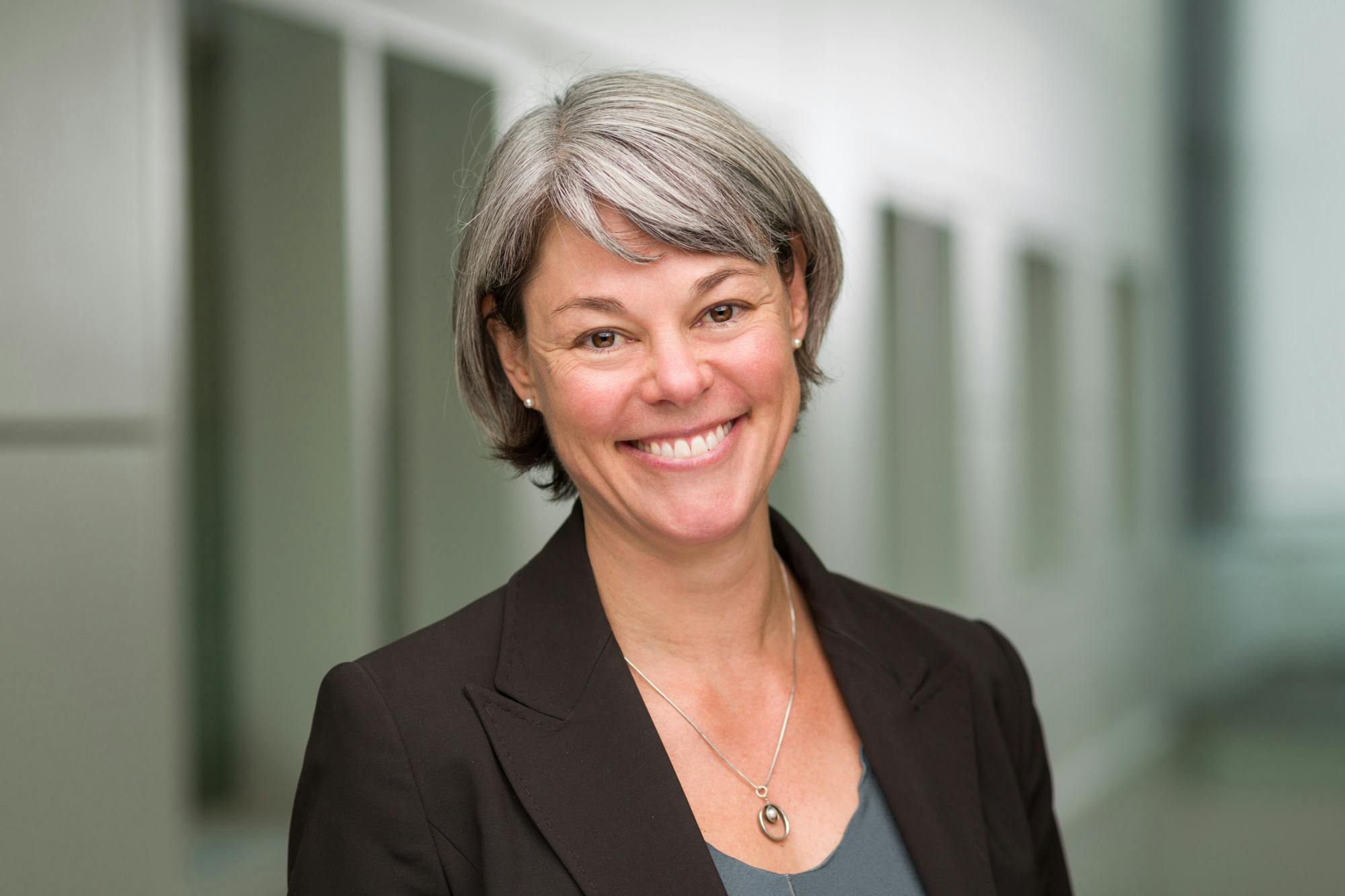Amber Barnato is the director of Dartmouth’s Geisel School of Medicine Institute for Health Policy and Clinical Practice and a physician health services researcher with a focus on end-of-life decision making. She currently leads a team of researchers that have been awarded a $16.2 million grant from the National Institute on Aging. The five-year renewal grant will allow Barnato and her team to continue researching inequities in healthcare for adults with Alzheimer’s and dementia-related diseases. The team’s study includes four key projects, including Barnato’s research project, which focuses on the regional policies of home and community-based services for adults with dementia.
What motivated you to study inequity in health and Alzheimer’s disease? Were you always interested in conducting research on the healthcare system and Alzheimer’s?
AB: Back in the early 2000s — when I first started doing health services research — I was interested in studying the healthcare system because it seemed unjust. I thought it was something that the U.S. healthcare policy should be designed to ameliorate, so I started off in my career wanting to help reform Medicare and Medicaid. I didn’t have a specific interest in Alzheimer’s disease; I took over for Geisel professor and economics research professor Jonathan Skinner, who had been leading the grant for 18 years and focused on researching diseases like heart disease, cancer and diabetes. The National Institute of Aging set aside money for studying Alzheimer’s disease and related dementias to catalyze research in that area. So, when my research team and I were going in for a competitive renewal — which is when you have a grant every five years — we understood that it had to be exclusively focused on patients with Alzheimer’s if our research was going to get funded under that appropriation.
Could you explain why disparities in Alzheimer’s disease and related dementias care have been under-researched?
AB: We’ve been more focused on the biomedical aspects of Alzheimer’s disease, like what causes it, how we can prevent it and why people get it. We know more about what causes Alzheimer’s, but we don’t have any treatments. We have this tsunami of older adults and almost no capacity to take care of them, with an overwhelmed caregiver population. So, we bet on hoping to find the blockbuster drug. There was an under-investment in exploring other things, but now that we’ve got people with the condition, we want to make sure that they get treated humanely and equitably.
How is the study organized between research teams?
AB: There are close to 30 researchers, which includes professors, research scientists and staff across Dartmouth College, Indiana University and Harvard University. The study is organized into four teams.
What specific research project are you involved in within this study?
AB: I’m co-leading “project one,” where my research team and I are doing a policy analysis. We are taking the variation between U.S. states in coverage for home and community-based services, which are basically Medicare- and Medicaid-financed services in someone’s home. If you are nursing home eligible and low income, Medicaid will pay for you to be put in a nursing home. But, nursing homes are expensive and people don’t want to go into them, so states have started experimenting with providing a homemaker and someone to help with transportation for this person in their home. My research explores the state-level heterogeneity of home and community-based services in different regions and its effect on the outcomes of older adults with Alzheimer’s disease.
What areas of focus are the other three research projects in this study?
AB: “Project two” focuses on affordable housing, which is Section Eight housing for low-income persons. This study is going to look at whether having a resident service coordinator in an affordable housing community helps patients with memory problems and Alzheimer's disease avoid unnecessary hospitalization. Or whether this increases the likelihood that these patients will get their vaccinations. This project is led by an epidemiologist and a social work scientist who studies housing in health. The third project is trying to understand the features of primary care that work for marginalized communities in managing chronic health conditions that can lead to or accelerate Alzheimer’s disease, like hypertension, diabetes and so on. It is going to be a national study, and it’s going to include both a data analysis of claims data from medical bills and interviews. The fourth project looks at the likelihood that a patient gets tested in the emergency department for chest pain symptoms from either potentially having a heart attack or a pulmonary embolism.
What are the implications of the study, and how will the NIA, which is a part of the National Institutes of Health, use the study’s findings?
AB: The NIH is exclusively responsible for funding research and doesn’t actually set policies related to healthcare delivery or population health. But, their goal is to fund policy-relevant research, and the expectation is that it is the mechanism by which it influences policy that goes into the peer-reviewed literature. So my research will be published, and then from there, it will be consumed by policymakers. Although states don’t have to provide these home and community-based services, they might decide to, or the federal government may create incentives to, if they think it’s going to help save money and improve the autonomy of older adults. So, it might be that Oklahoma sees what we find and changes their policy, but it is more of an indirect mechanism of changing policy. It requires that policymakers or their staffers read journal articles, or professors advocate for certain policies by writing an op-ed or testifying before Congress.
How can the Dartmouth community and students, specifically, get involved with your research or generally support the study of inequity in health and social care for adults with Alzheimer’s?
AB: We have a Geriatric Center of Excellence at Dartmouth Health, and they have a group of patients with Alzheimer’s disease, and their family members, who are our patients and community advisory board. They’re helping us make sure that we’re thinking thoughtfully about the actual experience of patients and their caregivers. If any students are interested in these topics, they should contact the principal investigators of the project they are interested in and ask what they can do. We often have Presidential Scholars or other undergraduate researchers on our projects. Sometimes they stay for just a term, sometimes they work with us for longer. But, we love having undergraduates work with us. And those are the most obvious ways to get involved: being a community member, being on the advisory board or being an undergraduate research student.
This interview has been edited and condensed for clarity and length.

Aidan Silvestro is a '27 from Monroe, Connecticut. Interested in the intersection of climate, energy, and international security, Aidan is pursuing an Earth Science and Russian degree. Aidan is a research assistant in the Earth Sciences Department studying permafrost thaw in the Arctic and on Mars. In his free time, Aidan skis for the Dartmouth Club Alpine Ski Team, enjoys film and DSLR photography, long-distance hiking, and gardening.




